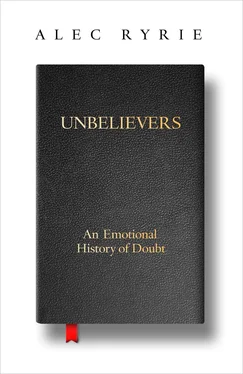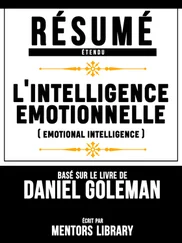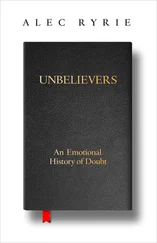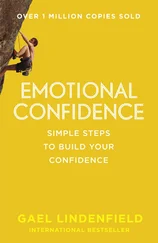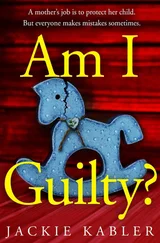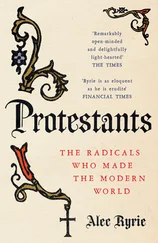An Emotional History of Doubt
William Collins
An imprint of HarperCollins Publishers
1 London Bridge Street
London SE1 9GF
www.WilliamCollinsBooks.com
This eBook first published in Great Britain by William Collins in 2019
Copyright © Alec Ryrie 2019
Cover design by Jack Smyth
Cover images © Shutterstock
Alec Ryrie asserts the moral right to be identified as the author of this work
A catalogue record for this book is available from the British Library
All rights reserved under International and Pan-American Copyright Conventions. By payment of the required fees, you have been granted the non-exclusive, non-transferable right to access and read the text of this e-book on-screen. No part of this text may be reproduced, transmitted, down-loaded, decompiled, reverse engineered, or stored in or introduced into any information storage and retrieval system, in any form or by any means, whether electronic or mechanical, now known or hereinafter invented, without the express written permission of HarperCollins
Source ISBN: 9780008299811
Ebook Edition © October 2019 ISBN: 9780008299835
Version: 2019-09-23
for Victoria, my believer
‘Most of us, I suspect … make an instinctive decision, then build up an infrastructure of reasoning to justify it. And call the result common sense.’
Julian Barnes, The Sense of an Ending
Contents
Cover
Title Page
Copyright
Dedication
Epigraph
Introduction
1. An Age of Suspicion
Impostors, Drunkards and Flat-Earthers
The Fool’s Heart
Physicians, ‘Naturians’ and ‘Nulla Fidians’
From Ancient to Modern
2. The Reformation and the Battle for Credulity
Calvin and the Epicures
Between Superstition and Impiety
‘Doubt Wisely’: From Innocence to Experience
3. The Atheist’s Comedy
Incest, Thunder and Wishful Thinking
Shaking Off the Yoke
The Good Atheist
4. The Puritan Atheist
‘The Monster of the Creation’
Horrid Temptations
Fear of Flying
5. Seeking and Losing Faith
‘It’s a Great Matter to Believe there is a God’
The Spiritualists’ Progress
Farther Up and Farther In
Seeking a Rock to Build On
6. The Abolition of God
The Three Impostors
From Then to Now, I: Anger
From Then to Now, II: Anxiety
From Jesus to Hitler
Acknowledgements
Notes
Index
About the Author
Also by Alec Ryrie
About the Publisher
Two friends, Christian and Hopeful, are travelling in search of Heaven. On the road, they meet a man named Atheist. When they tell him about their quest, he erupts into ‘a very great Laughter’: ‘I laugh to see what ignorant persons you are, to take upon you so tedious a Journey … There is no such place as you Dream of.’ [1]
In John Bunyan’s fable, the travellers stop their ears to these siren words and continue on their way. But as Bunyan knew all too well, Atheist’s defiance was in fact dangerously compelling. The thought he gave voice to was already haunting the historically Christian cultures of Europe and North America when he wrote The Pilgrim’s Progress in the 1670s, and has done so ever since. Perhaps you disagree with Atheist, but you are certainly familiar with the point he was making. Or perhaps you think he spoke the plain and self-evident truth.
This book is about one of the most momentous changes in modern history: the appearance in the once-Christian West of post-religious societies. [2]This is not a total transformation (at least, not yet). Europe and especially North America still have a great many believers, who still have a powerful public voice, and Western culture is steeped in Christianity’s cultural residue. But in every Western society a rapidly rising share of the population, and especially of young people, claims to have no religion. Even in the assertively pious United States, in 2007 this was true of an unprecedented 16 per cent of adults. By 2014 that share had risen to 23 per cent (that is, around 55 million people), including well over a third of those born since 1980. [3]In many of the regional, educational and political subcultures that make up the modern United States, open and unapologetic unbelief is now the norm: something that has never been true before the current generation. In Europe, the share of adults who profess no religion now ranges from a sixth (in Italy and Ireland), to around a quarter (Britain, France, Germany), to well over 40 per cent (Norway, Sweden, the Netherlands). Other studies put the figures even higher. A 2015 survey had 43 per cent of British adults claiming no religion, a figure rising to 70 per cent of those under 24. [4]And on both sides of the Atlantic, many of those who do still claim a Christian identity do so only nominally or residually, their daily lives largely undisturbed by their professed religion.
‘Why,’ the philosopher Charles Taylor asks, ‘was it virtually impossible not to believe in God in, say, 1500 in our Western society, while in 2000 many of us find this not only easy, but even inescapable?’ [5]Many of those who (like Taylor himself) continue to believe are conscious of swimming against a cultural tide. Over a century ago, Friedrich Nietzsche notoriously claimed that ‘God is dead … and we have killed him’. In large and growing parts of Western society, that shocking claim has turned into a self-evident truth.
As a historian, my question is: so, who killed him, when, and how? The usual answer is: philosophers, scientists and intellectuals; during the Enlightenment and scientific revolution of the eighteenth and nineteenth centuries; and by means of a frontal assault. In the 1660s, so the story goes, Baruch Spinoza first showed that a world without God could be philosophically coherent. In the eighteenth century there was a double assault: polemicists such as Voltaire and Thomas Paine openly attacked the Church’s moral authority, and philosophers as varied as David Hume, Immanuel Kant and Jean-Jacques Rousseau constructed systems which, whether or not we classify them as strictly atheist, left Christianity far behind. God became, as Pierre-Simon Laplace supposedly told Napoleon in 1802, a redundant hypothesis. Nineteenth-century philosophers such as Ludwig Feuerbach and Arthur Schopenhauer found the case against religion to be almost self-evident. By the time Charles Darwin provided an explanation for the origins of life without reference to God in 1859, the work was virtually completed. All that the wider culture has done since then is catch up. [6]
I wrote this book because I am not satisfied with that stereotypical account. The timescale, the suspects and the nature of the murder are all wrong. Telling the story a different way not only changes our sense of history; it casts our current moment of pell-mell secularisation in a different light.
To take the simplest problem first: the death-by-philosophy narrative is a poor fit with the actual chronology of Western secularisation. Were the religious revivals of the later eighteenth and nineteenth centuries, or the apparent Christian resurgence across the West in the 1950s, simply religion’s death throes? Was the sudden collapse of the West’s religious cultures in the 1960s merely the shattering of a husk after centuries of patient hollowing-out? [7]Even if you can explain away this chronological mismatch, the conventional starting point is plainly wrong. If atheism only became a live possibility in the 1660s, how could Bunyan, who was nobody’s intellectual elitist, depict such an assertive and recognisable ‘Atheist’ in the 1670s? How could it be said in the 1620s that there were fifty thousand atheists in Paris, or in the 1590s that ‘there is no Sect now in England so scattered as Atheism’? How could a preacher in Florence in 1305 warn that the question ‘how can it be that God exists?’ was being ‘put by madmen every day’? [8]
Читать дальше
